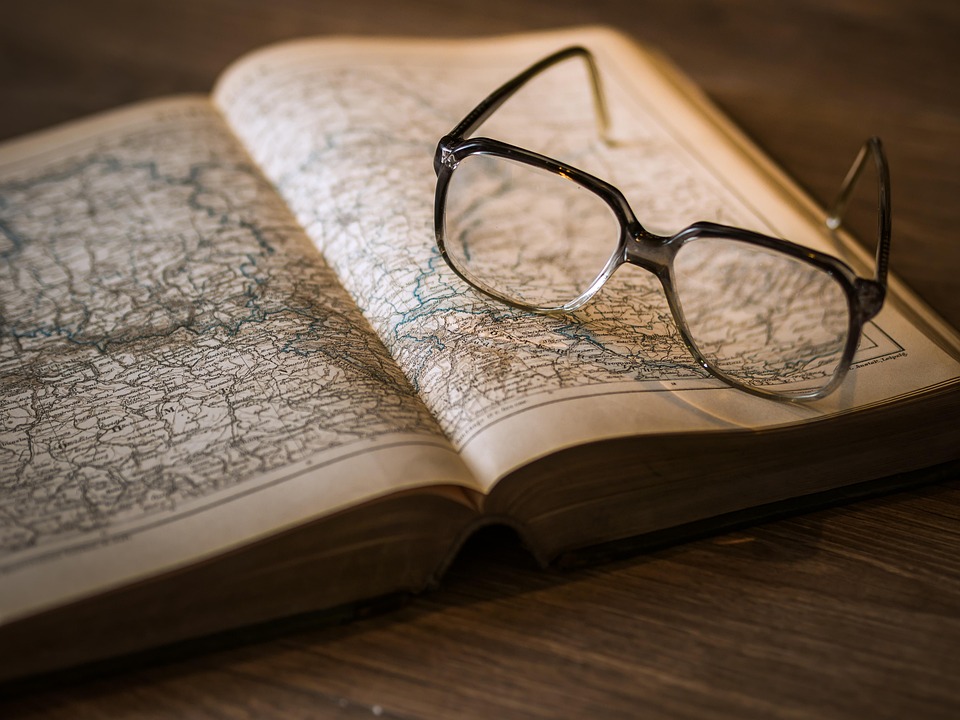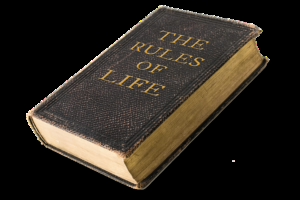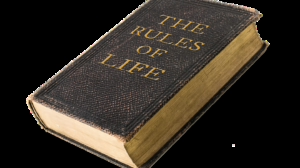Millennia of Belief: A Historical Perspective on Religion’s Role in Society
Introduction
The role of religion in human society has been multifaceted, evolving significantly over millennia from primitive animism to complex organized religions. Throughout history, religion has influenced social structures, laws, art, and morality. This article explores the historical trajectory of religion’s role in society, highlighting significant periods and transformations that reveal how deeply embedded religion is in human culture.
Prehistoric Beliefs: Animism and Spirituality
The Dawn of Spirituality
Before organized religion took shape, prehistoric societies practiced forms of animism—believing that objects, places, and creatures possessed spiritual essence. Evidence of animistic beliefs can be found in cave paintings, burial sites, and artifacts, indicating a recognition of the spiritual world that transcended the physical.
Community and Rituals
Early animistic practices fostered community cohesion. Rituals, often revolving around hunting or agricultural cycles, served not only as a means to connect with the spiritual realm but also as a way to unify groups. Early humans gathered to perform rituals, share stories, and pass down traditions, solidifying social bonds essential for survival.
The Rise of Organized Religions
Ancient Civilizations: Mesopotamia, Egypt, and the Indus Valley
As societies grew more complex, so did their religious practices. In ancient Mesopotamia, for example, cities like Ur and Babylon worshipped a pantheon of gods, linking religious belief with governance. The Ziggurats of Ur stood as monumental testaments to the intertwining of sacred and political life. Similarly, ancient Egypt experienced a theocratic culture where Pharaohs were regarded as divine intermediaries, further embedding religion into the fabric of society.
The Birth of Major World Religions
By around 600 BCE, significant religious systems emerged, such as Judaism, Buddhism, and Zoroastrianism. These religions introduced more structured doctrines, ethical guidelines, and sacred texts. Monotheism, as exemplified by Judaism, marked a shift from polytheistic beliefs, influencing subsequent religions like Christianity and Islam.
The Role of Religion in Governance
In many ancient societies, religion served as a foundational component of law and governance. For instance, the Code of Hammurabi in Babylon integrated laws with divine authority, proclaiming that the king ruled by the consent of the gods. This interplay of religion and statecraft established religious authority as an essential pillar of societal order.
The Classical Period: Philosophy and Religion
Hellenistic Influences
The classical period saw a marriage of philosophical inquiry and religious thought, particularly in ancient Greece. Philosophers such as Socrates, Plato, and Aristotle grappled with metaphysical questions about existence, ethics, and the nature of the divine, prompting a reassessment of traditional religious beliefs.
The Spread of Mysticism
Mystery religions like Mithraism and the Cult of Dionysus offered spiritual fulfillment outside mainstream religious structures. These movements often emphasized personal experience and esoteric knowledge, reflecting a growing human desire for individualized spirituality.
The Emergence of Christianity
As the Hellenistic world faced increasing turmoil, Christianity emerged as a unifying force. With its emphasis on love, forgiveness, and community, it appealed to the marginalized and disenfranchised. This new faith spread rapidly, reshaping societal values across the Roman Empire.
The Middle Ages: Faith and Authority
The Rise of the Church
During the Middle Ages, the Christian Church solidified its power, becoming a dominant force in Western Europe. The Papacy wielded significant political influence, dictating terms to monarchs and shaping laws through canon law. Religious institutions became repositories of knowledge, preserved by monks and scholars.
Islam’s Ascendancy
Simultaneously, the Islamic faith emerged in the 7th century, quickly becoming a major world religion. The Caliphate combined spiritual leadership with political rule, establishing a system that merged governance with religious authority. This interplay influenced various aspects of life, including trade, science, and philosophy in Islamic Golden Age civilizations.
The Role of Religion in Education
Religion became a principal driver of education during the Middle Ages. Monasteries and cathedral schools became centers of learning, preserving ancient texts and cultivating scholars. Theology became a respected academic discipline, thereby intertwining education and religious ideology.
The Renaissance and Reformation: Challenge and Change
Humanism and the Questioning of Authority
The Renaissance marked a departure from strictly religious worldviews towards humanistic perspectives. Scholars like Erasmus and Thomas More promoted ideas that questioned dogma and emphasized human potential. The invention of the printing press further facilitated the spread of these new ideas, challenging the Church’s authority.
The Protestant Reformation
The transformative spark of the Reformation ignited widespread religious upheaval. Figures like Martin Luther and John Calvin challenged papal authority, proposing a return to biblical foundations. The resulting fragmentation of Christianity birthed numerous denominations and altered societal structures, including the relationship between church and state.
Religious Wars and Tolerance
In the wake of the Reformation, Europe was rife with religious conflict. The Thirty Years’ War and other sectarian strife underscored the volatile nature of faith and power. However, these tensions ultimately led to movements advocating for tolerance, laying the groundwork for secularism.
The Enlightenment: Reason and Religion
The Rise of Rationalism
The Enlightenment ushered in an era where reason and science began to rival religious explanations of the universe. Thinkers like Voltaire and Rousseau critiqued institutionalized religion, advocating for a more personal, rational approach to spirituality.
Decline of Religious Authority
During this period, the authority of traditional religious institutions waned. The emergence of Deism—a belief in a rational creator—espoused a worldview that favored ethical behavior without strict adherence to dogma. This philosophical shift significantly impacted societal values and political ideologies, promoting individual rights and freedoms.
Modern Era: Religion in a Secular World
Religion in the Age of Industrialization
The Industrial Revolution brought about profound changes in societal structures. As cities grew and populations migrated, traditional religious practices faced challenges from modernization. Secular ideologies, including socialism and capitalism, emerged, often conflicting with religious views.
Contemporary Religious Movements
Despite modernization, religion remains a significant societal factor. Contemporary movements, such as the New Age movement, blend spirituality with modern beliefs, reflecting a desire for meaning in an increasingly fragmented world. Additionally, the rise of megachurches illustrates how religion adapts to modern contexts, emphasizing community and individual experience.
Globalization and Interfaith Dialogue
As globalization continues to connect diverse cultures, interfaith dialogue has emerged as a vital means of fostering understanding. Various organizations promote religious tolerance, recognizing the importance of coexistence in a pluralistic world. However, tensions persist, leading to questions about religion’s role in global conflicts.
Conclusion: The Enduring Role of Religion
Religion has continuously shaped human experience, influencing social structures, ethics, and cultural expressions over millennia. From animistic beliefs to modern spiritual movements, religion serves as a reflection of humanity’s search for meaning, community, and understanding.
While the nature of belief may evolve, its impact on society remains profound. Religion continues to be a source of solace for many, a moral compass, and a framework for community and identity in an ever-changing world. As we move further into the 21st century, the dialogue between faith and reason, tradition and modernity, remains crucial in navigating the complexities of human existence.
Sources
- Smith, Huston. The World’s Religions. New York: HarperOne, 1991.
- Armstrong, Karen. The History of God: The 4,000-Year Quest of Judaism, Christianity, and Islam. New York: Ballantine Books, 1993.
- Stark, Rodney, and William Sims Bainbridge. The Future of Religion: Secularization, Revival and Cult Formation. Berkeley: University of California Press, 1985.
- Nock, Arthur Darby. Conversion: The Old and the New in Religion from Alexander the Great to Augustine of Hippo. Oxford: Oxford University Press, 1933.
- Bellah, Robert N. Religion in Human Evolution: From the Paleolithic to the Axial Age. Cambridge, MA: Harvard University Press, 2011.
- Weber, Max. The Protestant Ethic and the Spirit of Capitalism. New York: Scribner, 1958.


























Add Comment